[Dec 2007, Volume 4 Quarterly Issue] Pdf File size - The IIPM Think ...
[Dec 2007, Volume 4 Quarterly Issue] Pdf File size - The IIPM Think ...
[Dec 2007, Volume 4 Quarterly Issue] Pdf File size - The IIPM Think ...
Create successful ePaper yourself
Turn your PDF publications into a flip-book with our unique Google optimized e-Paper software.
Shubha Ghosh<br />
Professor of Law<br />
SMU Dedman School of Law<br />
Dallas, Texas USA<br />
<strong>The</strong> First Sale Doctrine Before <strong>The</strong> U.S. Supreme Court:<br />
Intellectual Property Implications For India<br />
"Bad laws are the worst sort<br />
of tyranny."<br />
-Edmund Burke<br />
<strong>The</strong> United States Supreme<br />
Court will be hearing oral arguments<br />
in a case called Quanta<br />
Computers v. LG Electronics in<br />
January, 2008. At issue in the case is<br />
the status of the first sale doctrine in<br />
light of recent decisions by the United<br />
States Court of Appeals for the Federal<br />
Circuit, the intermediate appeals court<br />
for the review of claims under patent<br />
law. <strong>The</strong> Federal Circuit has created a<br />
doctrine called the conditional sale<br />
doctrine which allows patent owners to<br />
impose conditions on the sale of license<br />
of a patented invention which limits the<br />
application of the first sale doctrine.<br />
<strong>The</strong> following is a summary of an argument<br />
from a brief that I submitted on<br />
behalf of the American Antitrust Institute<br />
that supports Quanta’s position in<br />
the case. Although resolving issues of<br />
U.S. law, the outcome of this case has<br />
important implications for the development<br />
of intellectual property law globally<br />
and in India.<br />
For over a century and a half, the first<br />
sale doctrine (also known as the exhaustion<br />
doctrine) has provided certainty<br />
for users, manufacturers and<br />
other business entities in the distribution<br />
of goods and services protected by<br />
intellectual property law. Patent and<br />
copyright law grants to inventors and<br />
authors limited rights to control the distribution<br />
of the products of their creativity.<br />
However, the first sale doctrine<br />
creates a bright-line rule that ensures<br />
that purchasers of these works can further<br />
transfer these items to third parties<br />
without the interference of the original<br />
intellectual property owners. In this<br />
way, the first sale promotes an active<br />
and vibrant marketplace for works created<br />
through the benefit of patent and<br />
copyright and therefore is integral to<br />
the goals of innovation and competition<br />
that are at the foundation of the system<br />
of intellectual property rights. <strong>The</strong><br />
doctrine of conditional sale, as articulated<br />
and applied by the United States<br />
168 THE <strong>IIPM</strong> THINK TANK


![[Dec 2007, Volume 4 Quarterly Issue] Pdf File size - The IIPM Think ...](https://img.yumpu.com/29766298/167/500x640/dec-2007-volume-4-quarterly-issue-pdf-file-size-the-iipm-think-.jpg)
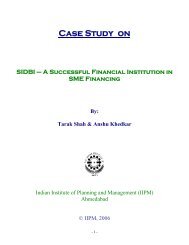
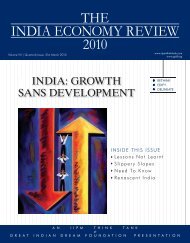
![[Feb 2008, Volume V Annual Issue] Pdf File size - The IIPM Think Tank](https://img.yumpu.com/43961117/1/190x245/feb-2008-volume-v-annual-issue-pdf-file-size-the-iipm-think-tank.jpg?quality=85)
![[June 2008, Volume V Quarterly Issue] Pdf File size - The IIPM Think ...](https://img.yumpu.com/41693247/1/190x245/june-2008-volume-v-quarterly-issue-pdf-file-size-the-iipm-think-.jpg?quality=85)
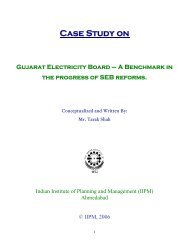
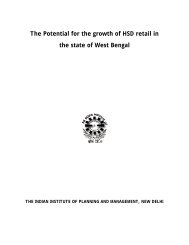
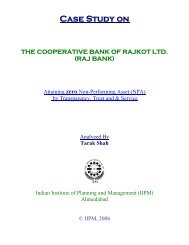

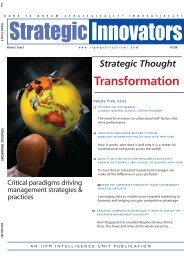
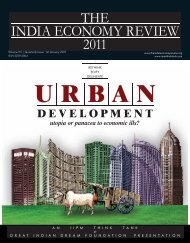
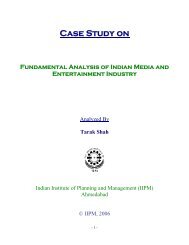
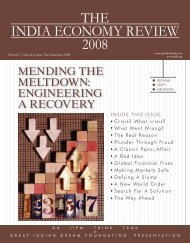
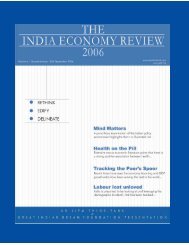
![[Volume VI | Quarterly Issue: 31st May 2009] Pdf File size](https://img.yumpu.com/27796051/1/190x245/volume-vi-quarterly-issue-31st-may-2009-pdf-file-size.jpg?quality=85)